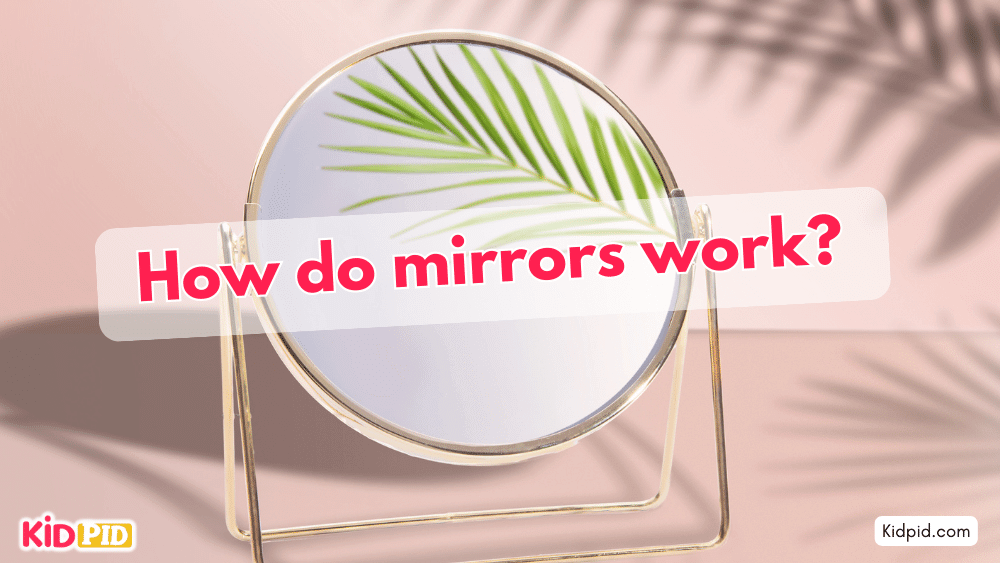Mirrors work by the reflection of light. When light rays hit a smooth, polished surface, they bounce off in a way that creates an image by preserving the angles between the reflected rays, allowing us to see ourselves or other objects in the mirror.
Contents
MCQs
1. What law explains how mirrors reflect light?
A) Law of Refraction
B) Law of Reflection
C) Law of Conservation of Energy
D) Law of Relativity
Answer: B ) Law of Reflection
Explanation: The Law of Reflection states that the angle of incidence (the angle at which light hits the mirror) is equal to the angle of reflection (the angle at which light bounces off).
2. What happens to light when it hits a mirror?
A) It gets absorbed
B) It passes through
C) It bends
D) It reflects
Answer: D) It reflects
Explanation: When light hits a mirror, it bounces off the mirror’s surface. This is why we can see images in mirrors.
3. What type of mirror can magnify objects?
A) Flat mirror
B) Concave mirror
C) Convex mirror
D) Transparent mirror
Answer: B) Concave mirror
Explanation: Concave mirrors can magnify objects because they curve inward, causing light rays to converge at a focal point before reflecting the light to our eyes.
4. Why do we see our reflection upside down in a spoon?
A) Because of the spoon’s flat surface
B) Because of the spoon’s concave surface
C) Because of the spoon’s convex surface
D) Because of the spoon’s material
Answer: B) Because of the spoon’s concave surface
Explanation: The concave surface of a spoon (like the inside part) can flip images upside down due to the way light rays are reflected and focused.
5. What is the focal point of a mirror?
A) The point where light rays meet after reflection
B) The center of the mirror
C) The edge of the mirror
D) The point where light rays diverge
Answer: A) The point where light rays meet after reflection
Explanation: The focal point of a mirror, especially in curved mirrors, is where the reflected light rays converge (meet) or appear to diverge from.
Read More
